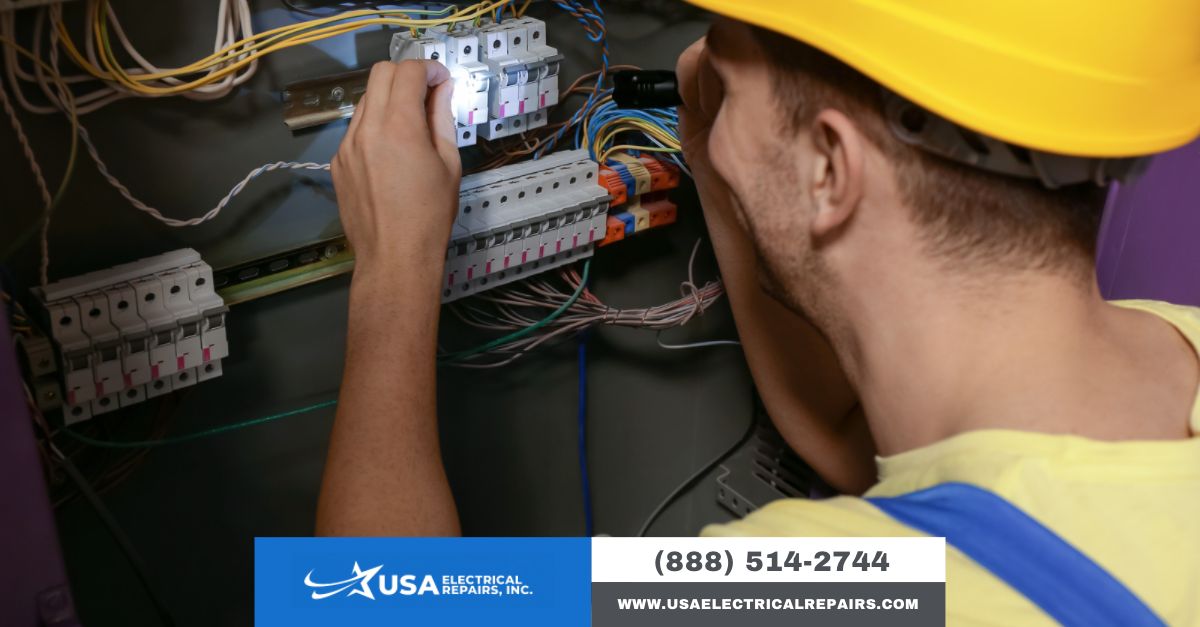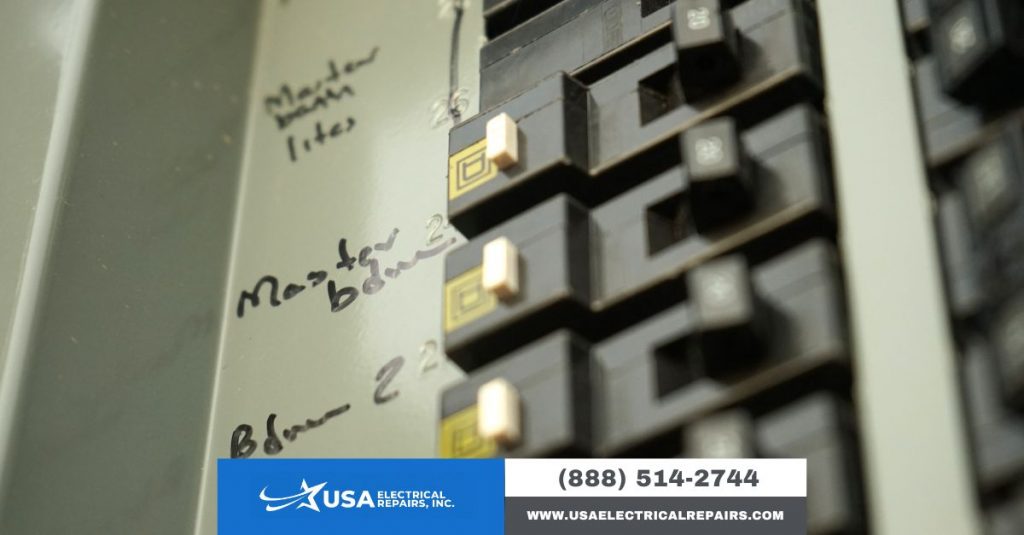Electrical breakers are the unsung heroes of your home’s electrical system, quietly protecting your circuits from dangerous overloads and short circuits. When they fail, however, the consequences can range from minor inconveniences to serious safety hazards. Understanding the costs associated with breaker repair can help you budget appropriately and make informed decisions when electrical issues arise. The cost of breaker repair varies significantly based on several factors, including the type of breaker, the complexity of the problem, your location, and whether you need emergency service. While simple breaker replacements might cost as little as $150, more complex electrical panel issues can run into the thousands. This comprehensive guide will break down everything you need to know about breaker repair costs, helping you understand what to expect when you search for a breaker repair near me.

Whether you’re dealing with a tripped breaker that won’t reset, flickering lights throughout your home, or planning preventive maintenance for your electrical system, having accurate cost information empowers you to make the best decisions for your safety and budget.
Understanding Different Types of Breaker Problems
Simple Breaker Replacement
The most straightforward breaker repair involves replacing a single faulty breaker in your electrical panel. This typically occurs when a breaker fails to trip properly, won’t reset after tripping, or shows visible signs of damage like burn marks or a burnt smell.
For standard single-pole breakers (15-20 amp), expect to pay between $150 and $300 for replacement, including labor. Double-pole breakers (30-50 amp) cost slightly more, ranging from $200 to $400. These prices include the cost of the breaker itself, which typically ranges from $15 to $50, plus one to two hours of labor.
GFCI and AFCI Breaker Repairs
Ground Fault Circuit Interrupter (GFCI) and Arc Fault Circuit Interrupter (AFCI) breakers are more sophisticated and expensive than standard breakers. GFCI breakers protect against ground faults in wet locations, while AFCI breakers detect dangerous arc faults that can cause fires.
Replacing a GFCI breaker typically costs between $250 and $450, while AFCI breaker replacement ranges from $200 to $400. The higher cost reflects both the more expensive breaker units ($50-$150 each) and the additional time required for proper installation and testing.
Panel Upgrades and Modifications
Sometimes breaker problems indicate larger issues with your electrical panel. Older panels may need updates to accommodate modern electrical loads or meet current safety codes. Panel upgrades represent a significant investment, typically ranging from $1,500 to $4,000 for complete replacement.
However, minor panel modifications, such as adding space for new breakers or upgrading the main breaker, can cost between $300 and $800. These improvements often become necessary when expanding your home’s electrical system or addressing code violations.
Factors That Influence Breaker Repair Costs
Geographic Location
Labor rates vary significantly across different regions. Urban areas with higher costs of living typically see electrical work rates between $75 and $150 per hour, while rural areas may have rates closer to $50 to $100 per hour. When searching for “breaker repair near me,” you’ll find that local market conditions heavily influence pricing.
Metropolitan areas like San Francisco, New York, or Washington D.C. often command premium rates due to higher overhead costs and increased demand for skilled electricians. Conversely, smaller towns and rural communities may offer more competitive pricing, though finding qualified professionals might take longer.
Timing and Urgency
Emergency electrical repairs command premium pricing. After-hours, weekend, or holiday service calls can add 50% to 100% to standard rates. If your breaker failure occurs during normal business hours and doesn’t pose an immediate safety threat, waiting for regular service can save hundreds of dollars.
However, certain situations warrant immediate attention regardless of cost. If you smell burning, see sparks, or experience frequent power outages, emergency service becomes a safety necessity rather than a convenience.
Complexity of the Problem
Not all breaker issues are straightforward replacements. Sometimes what appears to be a breaker problem actually stems from wiring issues, overloaded circuits, or problems elsewhere in your electrical system. Diagnostic work to identify the root cause can add $100 to $300 to your total cost.
Complex repairs involving rewiring, upgrading electrical panels, or addressing code violations require significantly more time and expertise. These projects can extend over multiple days and cost several thousand dollars.
Age and Type of Electrical Panel
Older electrical panels present unique challenges. Breakers for discontinued panel brands like Federal Pacific Electric (FPE) or Zinsco can be difficult to find and expensive to purchase. In many cases, electricians recommend complete panel replacement rather than attempting repairs on these outdated systems.
Modern panels with readily available parts typically offer the most cost-effective repair options. However, even newer panels may require specialized breakers that cost more than standard units.
Average Cost Breakdown by Service Type
Standard Service Calls
Most electrical contractors charge a service call fee ranging from $75 to $150, which covers the electrician’s time to travel to your location and diagnose the problem. This fee is often applied toward the total repair cost if you proceed with the recommended work.
Diagnostic time typically requires 30 minutes to an hour, during which the electrician tests your breakers, inspects your panel, and identifies the source of your electrical issues. This thorough evaluation ensures proper repair and helps prevent future problems.
Material Costs
Breaker costs vary based on type, amperage, and brand. Basic single-pole breakers cost $15 to $30, while specialty breakers like GFCI or AFCI units range from $50 to $150. High-amperage breakers for major appliances can cost $75 to $200 or more.
Quality matters when selecting replacement breakers. While cheaper alternatives exist, investing in name-brand breakers from manufacturers like Square D, Cutler-Hammer, or GE ensures compatibility and reliability. Professional electricians typically use commercial-grade components that offer better performance and longer warranties than consumer-grade alternatives.
Labor Expenses
Electrical work requires skilled professionals due to safety requirements and local code compliance. Most electricians charge between $50 and $150 per hour, with the national average around $80 per hour.
Simple breaker replacements typically require one to two hours of work, while more complex repairs can take a full day or longer. The electrician’s time includes not just the physical work but also proper testing, cleanup, and documentation required for code compliance.
When to Repair vs. Replace Your Electrical Panel
Signs You Need Breaker Repair
Several warning signs indicate breaker problems that require professional attention. Breakers that trip frequently, even with normal electrical loads, may have worn out or developed internal faults. Breakers that won’t stay reset or feel loose in the panel also need immediate replacement.
Visual signs of trouble include burn marks around breakers, a burning smell from your electrical panel, or breakers that feel hot to the touch. These symptoms suggest serious problems that could pose fire hazards if not addressed promptly.
When Panel Replacement Makes More Sense
Sometimes the cost of individual breaker repairs approaches the threshold where panel replacement becomes more economical. If your panel contains multiple failing breakers, outdated safety features, or insufficient capacity for your electrical needs, complete replacement often provides better long-term value.
Panels over 25 years old frequently benefit from replacement rather than piecemeal repairs. Modern panels offer improved safety features, greater capacity, and better compatibility with today’s electrical demands.
Cost-Benefit Analysis
Compare the cost of immediate repairs against the long-term benefits of panel upgrades. While a $300 breaker replacement might seem preferable to a $3,000 panel upgrade, consider factors like safety improvements, increased home value, and reduced risk of future electrical problems.
Professional electricians can provide detailed assessments comparing repair and replacement options, helping you make informed decisions based on your specific situation and budget.
Finding Qualified Electricians in Your Area
Licensing and Insurance Requirements
When searching for “breaker repair near me,” prioritize properly licensed and insured electricians. Electrical work requires specific licenses that vary by state and municipality. Always verify that your chosen electrician holds current licenses and carries both liability and workers’ compensation insurance.
Licensed electricians understand local electrical codes and safety requirements. Their work typically comes with warranties and meets inspection requirements, protecting you from potential liability issues.
Getting Accurate Estimates
Request detailed written estimates from multiple electricians to compare pricing and services. Good estimates should itemize labor costs, material expenses, and any additional fees. Be wary of estimates that seem significantly higher or lower than others, as these may indicate quality or reliability issues.
Ask about warranty coverage for both parts and labor. Reputable electricians stand behind their work with guarantees that protect your investment.
Questions to Ask Potential Contractors
Before hiring an electrician, ask about their experience with your specific type of electrical panel and breaker problems. Inquire about their availability, typical response times, and emergency service options.
Discuss payment terms and whether they offer financing for larger projects. Some contractors provide payment plans that make expensive electrical upgrades more manageable.
DIY vs. Professional Breaker Repair
Safety Considerations
Breaker repair involves working with live electrical components that can cause serious injury or death. Even experienced DIY enthusiasts should avoid electrical panel work due to the inherent dangers involved. Arc flash incidents can cause severe burns, while electrical shock can be fatal.
Professional electricians use specialized safety equipment and follow strict procedures to minimize risks. Their training and experience enable them to work safely around dangerous electrical components.
Legal and Code Requirements
Most jurisdictions require licensed electricians to perform electrical panel work. DIY breaker repairs may violate local codes and create liability issues with your homeowner’s insurance. Improper electrical work can also affect your home’s resale value and create problems during future inspections.
Professional work comes with proper permits and inspections that ensure code compliance. This documentation provides important protection for homeowners and helps maintain property values.
Long-term Reliability
Professional breaker repairs typically last longer and perform better than DIY attempts. Electricians understand proper installation techniques, compatibility requirements, and testing procedures that ensure reliable operation.
The peace of mind that comes with professional installation often justifies the additional cost, especially for critical electrical components like breakers that protect your entire electrical system.
Preventive Maintenance and Cost Savings
Regular Electrical Inspections
Preventive maintenance helps identify potential breaker problems before they become expensive repairs. Annual electrical inspections by qualified professionals can catch issues early when they’re less costly to address.
At American Clean and Heating, we specialize in maintaining your electrical equipment while providing amazing service. We believe that if your equipment and units are maintained correctly and frequently, you will increase the life expectancy of your units. Regular maintenance not only prevents costly emergency repairs but also ensures your electrical system operates safely and efficiently.
Extending Breaker Life
Simple steps like avoiding overloaded circuits and addressing electrical problems promptly can extend breaker life significantly. Keep electrical panels clean and dry, and avoid storing items near your electrical equipment.
Monitor your electrical usage and consider upgrading circuits that frequently trip breakers. Overloaded circuits cause premature breaker failure and create fire hazards.
Budget Planning for Electrical Maintenance
Set aside funds annually for electrical maintenance and repairs. A reasonable budget might allocate $200 to $500 per year for electrical upkeep, depending on your home’s age and electrical system complexity.
This proactive approach helps you address problems before they become emergencies, saving money on premium service rates and preventing more extensive damage.
Making Smart Decisions About Your Electrical System
Understanding breaker repair costs empowers you to make informed decisions about your home’s electrical system. While the initial expense of professional electrical work might seem high, the safety benefits and long-term reliability justify the investment.
When electrical problems arise, don’t delay in seeking professional help. What starts as a minor breaker issue can escalate into serious safety hazards or expensive damage if left unaddressed. By working with qualified electricians and investing in proper maintenance, you protect both your family’s safety and your property investment.
Remember that electrical work is not an area where cost-cutting measures should compromise safety or quality. Choose licensed, insured professionals who use quality materials and stand behind their work with solid warranties.

